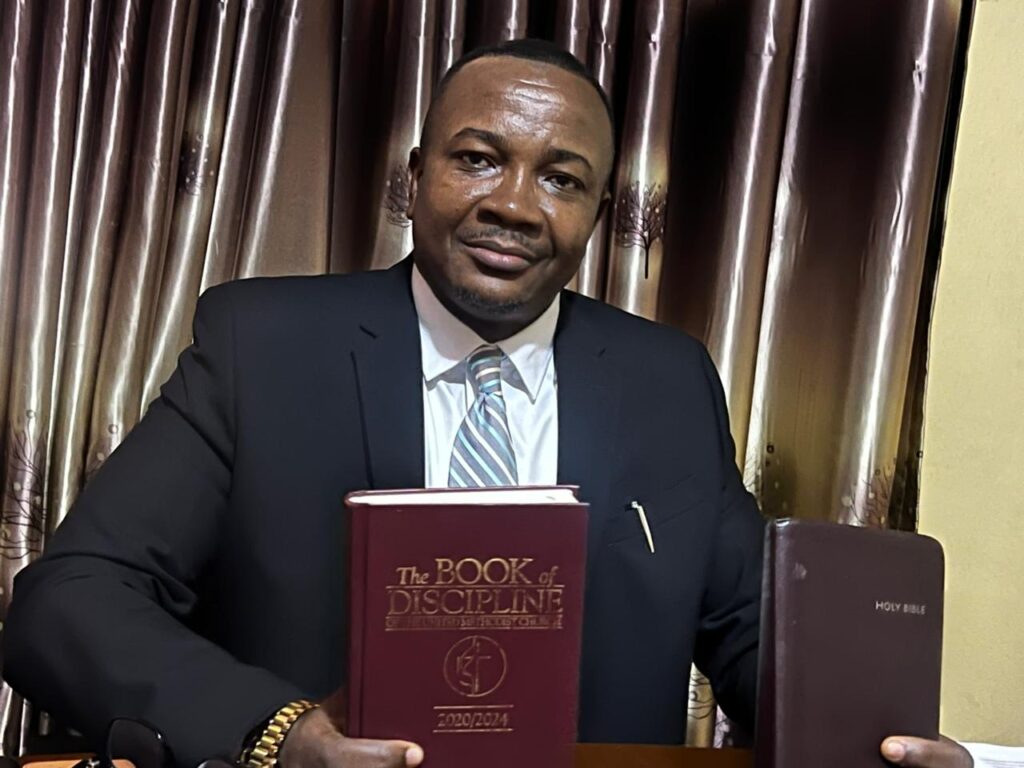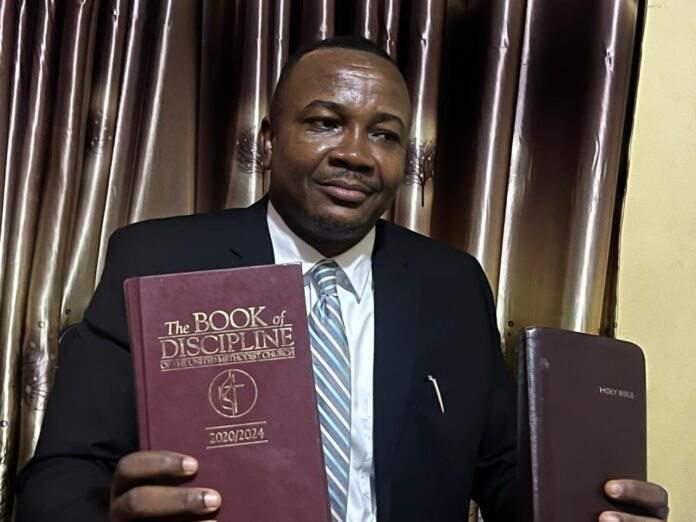Monrovia, Liberia— In a move that underscores the growing tensions within the United Methodist Church (UMC), Mr. L. Olandor Boyce I, a senior and influential figure in Liberia’s Methodist community, has formally withdrawn his membership from the denomination. His decision, announced through a detailed public statement, stems from what he described as a fundamental conflict between his faith and the church’s evolving global doctrine.
Boyce’s departure, while personal in nature, carries broader implications for the Liberia Annual Conference (LAC/UMC), as it amplifies existing concerns among conservative Methodists in the country over the direction of the denomination, both theologically and administratively.
Resignation Rooted in Doctrinal Discontent
At the heart of Boyce’s decision lies a deep unease with doctrinal reforms adopted by the UMC during its 2020–2024 General Conference in Charlotte, North Carolina. These reforms included the formal approval of same-sex marriages, the ordination of self-avowed practicing homosexuals, and a more permissive stance on issues such as abortion and sexual ethics.
For Boyce, these changes represent a fundamental breach of traditional Christian teachings. “The UMC’s current Book of Discipline promotes values that I believe are inconsistent with Biblical doctrine,” he said. “I cannot serve a church that compels me to hold its revised Discipline in one hand and the Holy Bible in the other, as if the two are compatible—they are not.”
In his strongly worded statement, Boyce said he views the UMC’s direction as not merely liberal or progressive, but “spiritually dangerous” for the next generation of Methodists. “I am extremely scared for the church our children and grandchildren are going to inherit,” he warned.
Tensions with Church Leadership in Liberia
Beyond the global doctrinal disputes, Boyce’s resignation also sheds light on internal conflicts within the leadership of the Liberian Methodist church. He directly criticized Bishop Samuel Quire, head of the Liberia Episcopal Area, for what he described as a failure to heed the widespread concerns of both clergy and lay members about the denomination’s theological shift.
“Bishop Quire refused to allow any conversation or re-evaluation of our affiliation with the UMC. Those who raised questions were suspended or sidelined,” Boyce claimed. He also pointed to a climate of intimidation and suppression under the current leadership, asserting that personal loyalty to the bishop has taken precedence over faith and conscience.
Further criticism was directed at Tolbert Nyenswah, the LAC Lay Leader, whom Boyce accused of fostering division and silencing dissent within the church. “The atmosphere in our once-warm Methodist fellowship has become toxic,” he said. “Disagreement is treated as rebellion, and fellowship is now measured by loyalty rather than faith.”
A Shift to the Global Methodist Church
In the face of what he calls a theological crisis, Boyce has declared his full allegiance to the Global Methodist Church (GMC)—a traditionalist breakaway denomination that emerged as a counterweight to the UMC’s liberal reforms. Boyce confirmed that he, along with his wife and children, is now a member of the GMC’s Liberian branch.
“I am fully prepared to contribute to the growth and establishment of the Global Methodist Church in Liberia,” he said, affirming his commitment to what the GMC describes as a “Wesleyan expression of Christianity grounded in Scriptural holiness.”
The GMC, formed in 2022, has become a refuge for thousands of Methodists across Africa, the United States, and other parts of the world seeking to preserve conservative interpretations of Christian doctrine. Boyce’s defection could trigger a ripple effect across Liberia’s Methodist landscape, with more conservative clergy and congregants potentially considering similar realignments.
A Moral Warning to Society
In his parting message, Boyce expanded his criticism beyond the church, issuing a warning to Liberia’s political and religious leaders. He expressed concern that the adoption of liberal theological positions by a major denomination like the UMC could undermine Liberia’s cultural and moral fabric.

“Same-sex marriage remains illegal in Liberia, yet our church now endorses it. This contradiction sends confusing signals to our youth,” Boyce argued. “We risk producing a generation that is spiritually misaligned and morally adrift.”
He also posed reflective questions to provoke broader dialogue: “Imagine if we had grown up in a church that endorsed same-sex unions—what would that have done to our understanding of faith, family, and identity?”
Boyce called on policymakers, clergy, and parents to guard against what he views as foreign theological influences that are incompatible with Liberian values. “This is not just about church doctrine; it is about national identity, family structures, and the moral compass of our society.”
A Turning Point for Methodism in Liberia
Mr. Boyce’s withdrawal marks a significant turning point in the history of Methodism in Liberia. What began as an internal debate over global doctrinal changes has now escalated into a larger ideological and spiritual confrontation.
His departure highlights the growing fracture between traditional and progressive interpretations of Christianity within the global UMC and raises questions about the future cohesion of Methodism in regions where conservative values remain dominant.
As theological realignments continue to unfold, Boyce’s decision is likely to be remembered not only as an act of personal conviction but as a signal flare for a broader movement within Liberia’s Christian community—one grappling with the tension between fidelity to Scripture and the evolving values of a global church.
His voice, now echoed from a different pulpit, may continue to shape the ongoing discourse on faith, leadership, and identity in Liberia’s religious and cultural arenas.



